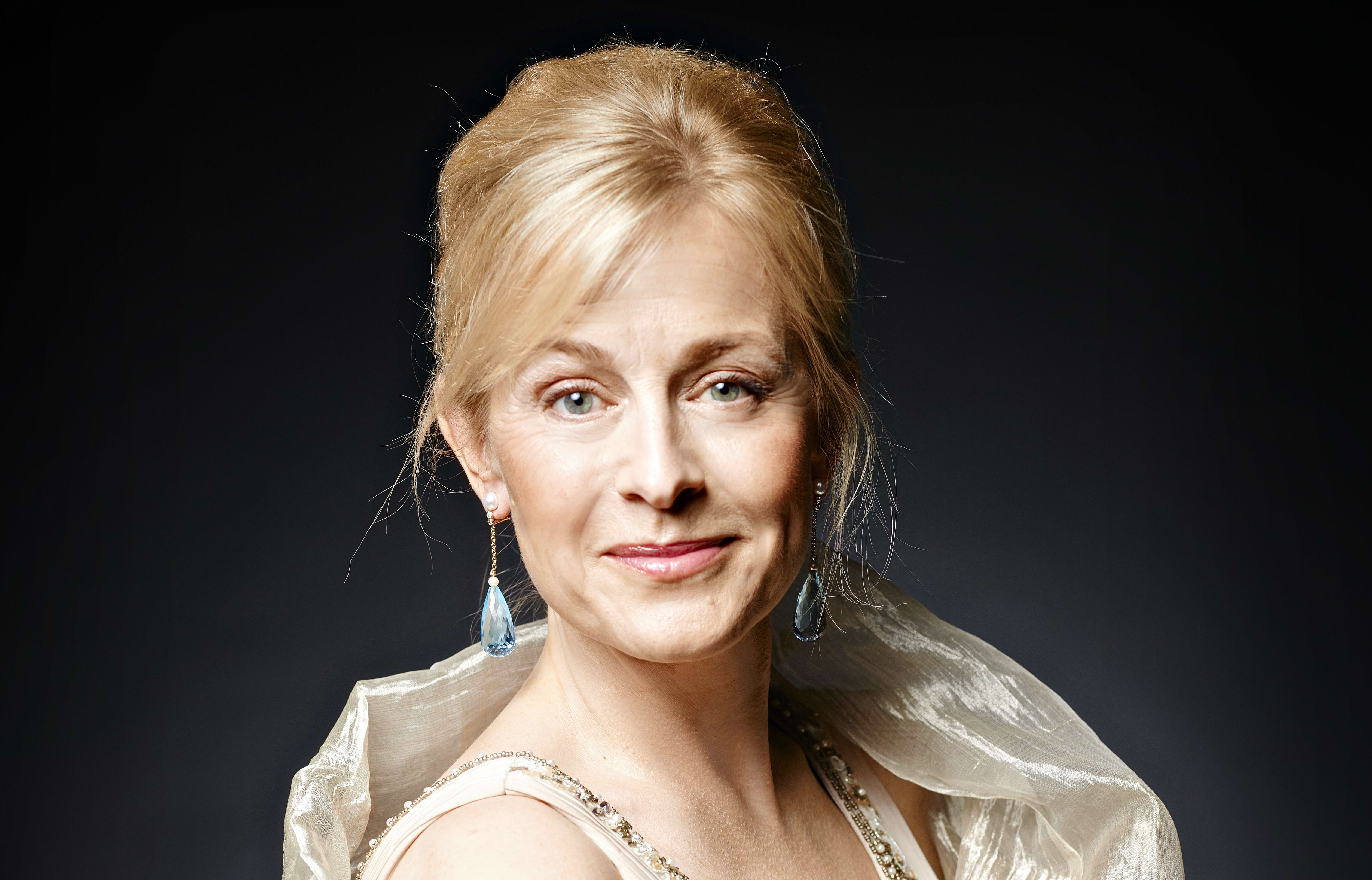Did heaven and earth move at last night’s performance by the Auckland Philharmonia Orchestra? The APO was joined for its Heaven and Earth concert by soloist Lisa Larsson to perform Berg’s Seven Early Songs and as soloist in Mahler’s Symphony No. 4. Reviewer Peter Hoar tells us if the Swedish soprano took him to a heavenly place.

Lisa Larsso Photo: Merlijn Doomernik
APO 16 November 2017 - Heaven and Earth
Conductor Giordano Bellincampi
Soprano Lisa Larsson
Mozart - Don Giovanni: Overture
Berg - Seven Early Songs
Mahler - Symphony No.4
The concert began with an acknowledgement of APO trumpet player Norm McFarlane who was a founder member of the orchestra in 1980. Norm is retiring this year and the audience and orchestra members paid tribute with enthusiastic applause.
The music began with a taut and dynamic read of Mozart’s Don Giovanni Overture. This was the ‘Hell’ that the concert title promised. The overture begins with fateful chords and nervous, gloomy skitterings from the orchestra suggestive of tormented shades. The APO’s performance was crisp and propulsive with a dark opening that turned to brighter sounds; a transition that illustrates the dichotomy of this famous ‘Drama giocoso’ with its dark subject matter being played out in the vital and often joyful music. A stylish concert opening delivered with panache.
Then a surprise; we had an unscheduled performance of Mozart’s Six German Dances (K571) which set the scene for the folkish, Austrian Ländler dance rhythms Mahler deploys in his 4th Symphony. The final dance of the set with its swooping violins and ‘Turkish’ percussion was particularly vigorous and amusing.
Swedish soprano Lisa Larsson took the stage and delivered a quite ravishing performance of Alban Berg’s Seven Early Songs (Sieben frühe Lieder), written 1906-08 while he was a pupil of Arnold Schoenberg. These short pieces are at times lush, sensual, and redolent of dreams and memories of love. Larsson rose admirably to the moods and emotions of each song from the tender sensuality of Traumgekront to the yearning of the final Sommertage. Her colourful voice was balanced well with the APO.
After the interval came Gustav Mahler’s Symphony No. 4 in G (1900). This is possibly Mahler’s sunniest symphony and its final movement is a setting of verses from the collection of myths and tales, Das Knaben Wunderhorn (The Youth’s Magic Horn), which tell of a child’s view of Heaven which Larsson sang with a sense of freshness, clarity and innocence that suited the naïve lyrics. Bellincampi set a relaxed tempo for the opening movement and gradually unfolded the symphony over the course of an hour with careful attention to both its huge, complex architecture and the myriad of details that fill each movement. The darker Second Movement evoked the Ländler rhythms of the Mozart dances we had heard earlier and suggested a certain demonic impulses with energy and spectral violin playing.
From these diabolical depths, we entered into the symphony’s centrepiece, the expansive Third Movement. Regarded by many as Mahler’s finest slow movement, this music is meditative and anguished at times but final settles into a calm tranquillity that sets up the simplicity of the final movement. This was beautifully played and the APO held the audience all through its long course. It has its violent and stormy moments but work sits way to calmness that sets the stage for the final moment’s songs of Heaven’s pleasures.
This was a large concert in many ways and the APO, soloist Lisa Larsson, and conductor Giordano Bellincampi concluded 2017’s Premier Series with a set powerful performances that left us buoyed and enthralled.

